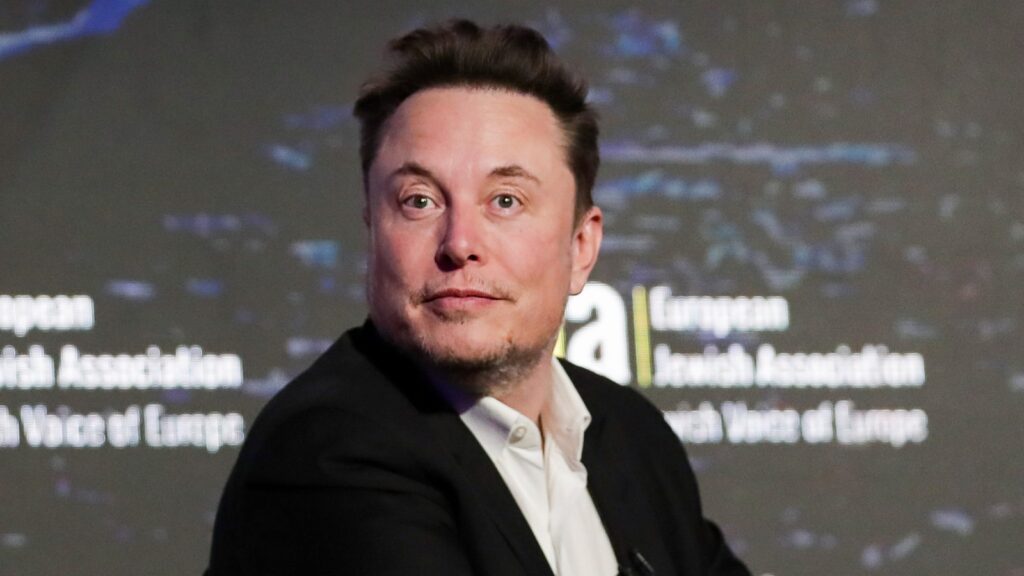Judge Tosses Musk’s Suit Against Anti-Extremism Watchdog That Reported Nazis on Twitter
A judge on Monday granted a motion to dismiss a lawsuit from X Corp. — the company formerly known as Twitter — against the Center for Countering Digital Hate (CCDH), an anti-extremism watchdog. The group had drawn the ire of the company’s owner, Elon Musk, by sharing research that revealed how racist and hateful content had exploded on the platform since his takeover in 2022. Musk’s suit, filed in July 2023, claimed that the CCDH was responsible for an advertiser exodus from the site.
“Sometimes it is unclear what is driving a litigation, and only by reading between the lines of a complaint can one attempt to surmise a plaintiff’s true purpose,” Senior U.S. District Judge Charles Breyer wrote in the 52-page decision. “Other times, a complaint is so unabashedly and vociferously about one thing that there can be no mistaking that purpose. This case represents the latter circumstance. This case is about punishing the Defendants for their speech.”
The CCDH had moved to strike X’s claims under California’s law on Strategic Lawsuits Against Public Participation (SLAPP), which is meant to curtail intimidatory suits from individuals or entities trying to silence critics, and a motion to dismiss the case entirely. Breyer agreed to both, also ruling that X could no longer amend its filing to extend the case.
The decision marks an important legal defeat for Musk, who despite claiming to be a champion of “free speech” sought to muzzle the group for accurately reporting on X’s moderation struggles. It continued to share such data in the months after the suit was brought: In November, CCDH found that X failed to remove 98 percent of posts related to the Israel-Hamas conflict that broke the platform’s own rules about misinformation and hate speech.
In a February 29 hearing on CCDH’s motions, Breyer took a skeptical view of X’s argument, which rested on the premise that the organization had broken X’s rules by “scraping” information from the site and threatened user safety, at one point calling it “vapid.” Regarding the company’s financial losses, Breyer also noted that it was “significant” that X had chosen not to bring a defamation case to hold the CCDH liable. To prove defamation, X would have had to show that the CCDH’s reports were untrue.
Breyer brought the defamation issue up again in his decision. “The Court notes, too, that X Corp.’s motivation in bringing this case is evident,” he wrote. “X Corp. has brought this case in order to punish CCDH for CCDH publications that criticized X Corp. — and perhaps in order to dissuade others who might wish to engage in such criticism.” Breyer concluded: “If CCDH’s publications were defamatory, that would be one thing, but X Corp. has carefully avoided saying that they are.”
“Throughout Elon Musk’s loud, hypocritical campaign of harassment, abuse, and lawfare designed to avoid taking responsibility for his own decisions, CCDH has remained quietly confident in the quality and integrity of our research and advocacy,” said CCDH CEO Imran Ahmed in a statement on Monday. “It is now abundantly clear that we need federal transparency laws, as the EU, U.K., and many other jurisdictions are bringing into force, to protect the public’s right to know about the platforms that shape so much of our public discourse and democracy. It is archly ironic that in his zeal to shut down criticism, Elon Musk made the most eloquent case ever for statutory transparency rules.”
On X, Musk has previously called the CCDH an “evil propaganda machine” that “just wants to destroy the first amendment under the guise of doing good,” and claimed that it is a “psy ops,” or covert psychological operation. At press time, Musk has yet to tweet about the collapse of his company’s lawsuit against CCDH.





